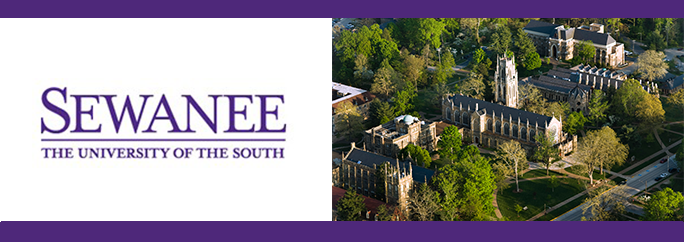
The Academic Minute from 05.11 – 05.15
Monday, May 11th
Kelly Whitmer – University of the South
Youth and Early Modern Innovation Culture
Kelly Joan Whitmer’s research explores the intersection of history of science with the history of youth culture, education, religion and emotion in the early modern world. She is particularly interested in the history of collecting and observational practices, visual and material culture, and forms of social experimentation c. 1500 to 1800. She has been the recipient of several academic awards and honors, including a Fulbright research fellowship, a postdoctoral fellowship at the Max Planck Institute for the History of Science, and most recently, a Humboldt fellowship to the University of Göttingen. As a scholar-in-residence at the Institute for Advanced Study there, she will pursue a collaborative project focused on pedagogies of objects and collections in the history of science.
Tuesday, May 12th
Rob Bachman – University of the South
Designing New Platinum-Based Anti-Cancer Drugs
Rob Bachman earned a B.A. and a Ph.D. in chemistry at Rice University with a focus in inorganic, organometallic, and organic chemistry. He teaches a variety of upper level courses in inorganic chemistry, including inorganic chemistry, bioinorganic chemistry, structural methods, materials chemistry, and advanced environmental geochemistry. Bachman also co-directs the Office of Undergraduate Research and Scholarship. Last year, 379 Sewanee students (of 1,700 total students) were involved in mentored research or scholarship, and the university funded 54 summer research fellowships.
Wednesday, May 13th
William Engel – University of the South
The Printer as Author in Early Modern English Book History
Bill Engel received a Ph.D. from the University of California at Berkeley and specializes in medieval and Renaissance literature with an eye toward the history of ideas—especially the Art of Memory and chiastic designs. He is the author of five books—four on literary history and one on teaching and learning. His reviews have appeared with some regularity in journals such as Sixteenth Century Journal, Seventeenth-Century News, and Renaissance Quarterly. Born and raised in the South, Engel has an abiding interest in Southern regional literature and history. A life-long fencer and currently the instructor of fencing at Sewanee, he also has choreographed stage combat and served as dramaturge for regional theater groups.
Thursday, May 14th
Katie Nelson-Coffey – University of the South
Happiness Gap for Mothers
Katie Nelson-Coffey has taught at Sewanee since 2015. She earned a B.S. in psychology from the University of Mary Washington and an M.A. and Ph.D. in personality/social psychology from the University of California, Riverside. In her research, she uses multiple methodologies (longitudinal, experimental, daily experience) to study how and why close relationships influence well-being. Her research focuses on what leads people to live happy and fulfilling lives. To this end, she examines how simple behaviors, as well as family life, influence health and well-being. Nelson-Coffey enjoys engaging students’ research interests and invites student collaborators with interests in personality, health, and well-being.
Friday, May 15th
Katie McGhee – University of the South
The Consequences of Maternal Stress on Offspring
Katie McGhee has been at Sewanee since 2015. She is a behavioral ecologist interested in the role parental effects have in shaping offspring behavior. She studies how the stress that parents experience during their lives, such as predator encounters, affects the behavior of their offspring in the future. McGhee studies the role of the early environment in shaping behavioral variation, and how this behavioral variation then affects interactions between individuals, such as those that occur between males and females, parents and offspring, or predators and prey.
